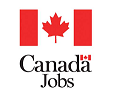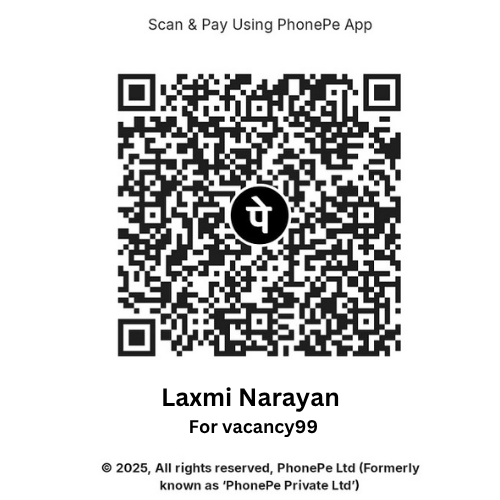Work Abroad
International Jobs
Study and International Jobs offers a unique opportunity to explore new cultures, advance your career, and embrace global job opportunities. Whether you’re eyeing international jobs as a teacher in Asia, a hotel manager in Dubai, or a digital nomad in Europe, this guide covers everything you need to know about jobs abroad. From necessary qualifications and visa requirements to financial planning and the pros and cons of relocating, we’ll help you navigate the complexities of working abroad with confidence.
 |
 |
 |
 |
 |
 |
| Search Jobs By Country | |||
| CANADA | USA JOBS | UK Jobs | UAE Jobs |
| Japan Jobs | VISA | Job Abroad | Australia |
| Newzeland | How to get a Job in USA ? | Singapore | |
Jobs by Specialization
| Medical & Nurse | Hotel & Restaurant | Drivers & Mechanic |
| IT & Computers | Maintenance | Engineering |
Jobs by Organization
| SAP Career | ABB Career | Marriott international Career | Cargill Career |
| UN Jobs | IMF Recruitment-Jobs | UNICEF Career | UNESCO Career |
Why Pursue Jobs abroad?
The appeal of work abroad lies in its blend of professional growth and cultural immersion. Worldwide jobs range from teaching English in Thailand to managing corporate projects in London. However, securing these opportunities requires preparation, including understanding qualifications, visas, and financial needs. This guide draws on practical insights to help you succeed in your international career.
Necessary Qualifications and Experience for International Jobs
Jobs abroad often requires specific qualifications and experience, depending on the role and destination:
-
Education: A bachelor’s degree is often required for professional roles like healthcare, engineering, or finance. For example, physicians in the Netherlands or hotel managers in Dubai need specialized degrees. Entry-level roles like au pair or TEFL positions may not require a degree.
-
Experience: Employers value relevant work experience. Hospitality chains like Hilton prefer candidates with prior hotel experience, while TEFL jobs may require minimal experience with training provided.
-
Certifications: A TEFL certification is essential for teaching English abroad in countries like China or South Korea. Certifications like PMP or AWS can boost prospects in corporate or tech roles.
-
Skills: Adaptability, communication, and cultural sensitivity are key. Technical skills, such as proficiency in industry tools, enhance employability.
HR Tip: Tailor your CV to the destination country’s standards. For instance, European employers may expect a photo, while U.S. companies prefer a concise resume. Learn more about resume tips for international jobs.
Age Considerations for International jobs
Age can influence eligibility for worldwide jobs, particularly for visa programs:
-
Young Professionals (18–35): Working holiday visas in countries like Australia or Canada are ideal for those aged 18–30 (or 35 in some cases). These allow you to work and travel for up to two years.
-
Mid-Career Professionals (35–50): Multinational companies like Wells Fargo or Conde Nast seek experienced professionals for roles in finance or media. These positions often require advanced qualifications but offer higher salaries.
-
Older Professionals (50+): Opportunities in consulting or education exist in regions like Southeast Asia or Africa, where specialized expertise is valued.
Check VisaGuide.World for age-specific visa requirements.
Language Requirements for International Jobs
Language proficiency is critical for working abroad:
-
English-Speaking Countries: The UK, Australia, or Canada are ideal for native English speakers, though workplace jargon may require adjustment.
-
Non-English-Speaking Countries: Basic knowledge of the local language, such as Mandarin in China or German in Germany, boosts job prospects. For example, an au pair in Hangzhou found that learning Mandarin enhanced cultural immersion.
-
Language Learning: Enroll in local language schools or use apps like Duolingo to improve proficiency.
HR Tip: Highlight language skills on your resume to stand out. Explore language learning resources (internal link) for tips.
Popular Job Types for Work Abroad
Worldwide jobs span diverse industries. Here are common options:
-
Teaching English (TEFL/TESOL): Popular in Asia, requiring a TEFL certification. No prior experience needed in countries like Thailand.
-
Hospitality: Roles with chains like Marriott in tourist hubs like Dubai range from front-desk staff to management.
-
Healthcare: Physicians and nurses are in demand in Canada or Germany, requiring specialized licensing.
-
Digital Nomad: Freelance roles in IT or marketing allow remote work from co-working spaces worldwide.
-
Au Pair: Involves childcare in countries like France or China, ideal for cultural exchange.
-
Corporate Roles: Multinationals offer opportunities in finance or media for relocation-ready professionals.
-
Seasonal Work: Agricultural jobs in New Zealand are accessible via working holiday visas.
Resource: Explore opportunities on GoAbroad.com or GoOverseas.com.
Visa and Passport Requirements
A valid passport and appropriate visa are essential for working abroad:
-
Passport: Ensure validity for at least six months beyond your stay, with sufficient blank pages.
-
Work Visas:
-
Working Holiday Visa: For ages 18–30 (or 35), available in Australia, Canada, and New Zealand.
-
Sponsored Work Visa: Requires a job offer, often in hospitality or healthcare. Involves paperwork like medical exams.
-
Digital Nomad Visa: Offered by Portugal or Estonia for remote workers with sufficient income.
-
-
Application Process: Visa processing can take weeks. Visit VisaGuide.World for country-specific requirements.
Tip: Use recruitment agencies cautiously, as they may charge fees. Always review contracts.
Financial Planning: Bank Balance and Finance Facilities
Financial preparation is key for jobs abroad:
-
Bank Balance: Some visas, like Australia’s working holiday visa, require proof of funds (e.g., AUD 5,000).
-
Cost of Living: Research expenses in your destination. Dubai has high costs, while Southeast Asia is affordable.
-
Finance Facilities: Use services like Wise for currency transfers. Open a local bank account if required.
-
Relocation Costs: Budget for flights, accommodation, and visa fees.
-
Emergency Fund: Maintain a cushion for unexpected expenses.
Resource: Estimate costs with Numbeo for accurate budgeting.
Pros and Cons of Working Abroad
Relocating for international jobs has rewards and challenges:
Pros
-
Cultural Immersion: Experience local traditions, like tea tastings in China, as shared by an au pair.
-
Career Growth: Work abroad enhances your resume with global experience.
-
Language Skills: Immersion accelerates language learning.
-
Networking: Build a global professional network.
-
Personal Growth: Develop resilience and adaptability.
Cons
-
Cultural Adjustment: Language barriers and homesickness can be challenging.
-
Financial Risk: High relocation costs may strain finances.
-
Visa Complexities: Navigating visa processes can be time-consuming.
-
Distance from Family: Being far from loved ones can be emotionally taxing.
SEO Tip: Read our guide to overcoming homesickness for practical tips.






